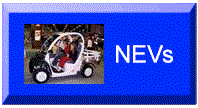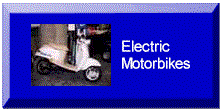







Plug in Vehicles in Thailand
![]() About
EVFinder
About
EVFinder
![]() EVents Calendar
EVents Calendar
![]() FAQ
FAQ
![]() EV Selector
EV Selector
![]() Links
Links
![]() The EV Finder Archive
The EV Finder Archive
![]() Site
Map
Site
Map
![]() Blog
Blog
Sunday April 6, 2025 Ė Destination Charging -
It has been a while since I last did an entry in my blog, but I have been
tossing around an idea in my head on destination charging and wanted to get it
written down. Feel free to use this idea for setting up destination charging.
A few weeks ago, I attended an event at the Universal City Hilton and it
was likely that I would have a long drive after the event. I went on Plug Share
to see if they had chargers. I found that they had a total of 16 chargers plus
one NEMA 14-50 outlet.
There are two banks of chargers and I used the ones on floor 3. I happily
plugged in and went off the event. Later, I used the Fordpass ap to check the
charge progress and saw that it was charging at only 3KW. If I had been more
diligent in reading the descriptions on Plug Share, I would have seen that there
were 2 ChargePoint chargers and the NEMA outlet in Valley Parking, and two Tesla
chargers on Level 2. All the other
chargers would only charge at 3 KW (about 9 miles per hour).
I thought that this was pretty bad, but while parking is expensive, the
chargers were free and, in the end, I didnít have to do the long drive. I also
realized that I would have had sufficient charge to complete the trip it if it
had been necessary.
This experience got me thinking and I realized that most visitors to the
Universal Hilton would be there to visit the Universal Studios theme park which
is just across the street from the Hotel. If I assume that someone arrives in
the evening, visits the park the following day, then leaves the day after, that
would leave their car parked for at least 40 hours. Assuming 9 miles of charge
per hour that would give them 360 miles of range, which for most current EVs
translates to 100% charge.
That works for destination chargers for the hotels near theme parks but
what about other destinations? I thought long and hard about this and then an
idea hit me.
One of the biggest complaints I hear about destination chargers is that
they often hogged by PHEVs. My old Plug-in Prius would reach a full charge on a
3KW charger in about 1.5 hrs. Something like the RAV-4 Prime, which has a lot
more range than the Prius Plugin would be able get a full charge in about 5
hours. At places like hotels, where people are plugged in overnight, EVs can
sometimes not get a charge because a PHEV sitting fully charged at the charger
while the owners are sleeping in their hotel rooms.
One often suggested solution to this is that Plug-in hybrids get banned
from using the chargers, but in the end, this only serves to reduce electric
miles travelled. Some hotels have placed chargers in the valet parking area so
the valet can move cars from the charger after they are full. This works well if
the valet takes care to check the chargers periodically to see when the charge
is complete.
My thought was to have two banks of chargers, one with a group of regular
level 2 chargers that are reserved for EVs, and a second bank of slower chargers
that can be used by Plug-in hybrids. A charger or two in the valet area, that
could be managed by the valet would give the PHEV driver who is only visiting
the hotel for a short event an option to get a charge at standard level 2 rates.
When possible, these banks of chargers could be paired with a solar
canopy and battery back-up to provide charging with renewable energy. I have
said for a long time that parking lots, especially here in the south-west would
be a great place for larger scale solar.
In my younger days I used to like taking road trips. Typically, I would
try to drive about 100 to 150 miles per day then stay one or two nights before
driving to my next destination. One of my favorite trips was to drive from LA to
Monterey with stops along the way in places like Santa Barbara, Pismo Beach, and
Gilroy. I recently tried to plan this trip using only destination chargers along
the way but found it very difficult to find hotels that had chargers in places
where I wanted to stay.
I find in many cases that hotels that have destination charges will have
just one J-1772 charger and one Tesla charger.
This was fine 10 years ago but now, given the number of EVs and PHEVs on
the road here in California, it is becoming harder and harder to find available
chargers at hotels. Adding some slower chargers would be a lower cost solution
to adding chargers for hotel customers.
I have advocated for more destination chargers for a long time and my
solution above would make a huge dent in the perception that there is
insufficient public charging. I think that this would also be a good solution
for workplace charging also.
If you want to comment on this topic, email me, but please include your Name, City and State or Country